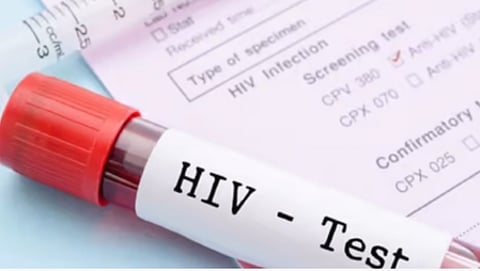

KOZHIKODE: Ten people who reportedly shared syringes for shooting up drugs have tested positive for HIV in Valanchery, Malappuram. They include three migrant labourers.
The cases were detected during a health inspection targeting suspected drug users in Valanchery, and have raised fresh concerns about the link between substance abuse and disease transmission.
The inspections were conducted as part of the state’s ongoing anti-drug campaign, with health authorities working in tandem with the AIDS Control Offices.
“We have been carrying out targeted screenings among high-risk groups, including sex workers and injecting drug users (IDUs), under the Kerala AIDS Control Society’s initiatives,” said District Medical Officer M Renuka.
“During one such screening, an individual tested positive for HIV. By tracking his needle-sharing contacts, we were able to identify and test more persons. Over the past two months, nine additional cases have been confirmed,” the DMO said.
Dr Renuka said those diagnosed have been placed under medical supervision and are undergoing counselling. According to her, early detection plays a crucial role in controlling the spread of the virus.
A major challenge in tackling the issue is the reluctance of drug users to disclose their contacts fearing legal consequences. However, in this case, one patient cooperated, which helped track down others who had shared needles with him, the DMO said.
Screenings and campaigns to be intensified
“Often, individuals are hesitant to reveal details about their drug-using network due to stigma and fear of legal trouble,” said Hameed Kattappara, project manager of the District Panchayat Suraksha Project.
“If more people realise that early detection and treatment are key to containing the disease, we could prevent further transmission far more effectively,” he said.
In response to these findings, authorities have decided to intensify both screenings and awareness campaigns. According to officials, beyond law enforcement measures against drug abuse, health-focused interventions are crucial. With drug injection usage on the rise, the risk of further transmission remains high. “The increasing prevalence of IDU-related HIV cases is alarming,” said Hameed.
“The influx of migrant workers poses another challenge, as they often lack access to healthcare awareness programmes,” he said.
Mental health professionals warn that drug addiction is deeply linked to social and psychological issues, necessitating a holistic approach.
“Many resort to substance abuse due to emotional distress or economic hardship. Without addressing the root causes, simply conducting screenings or enforcing drug laws will not be enough. We need more rehabilitation programmes and mental health support systems,” noted psychologist Dr Renu Joseph.